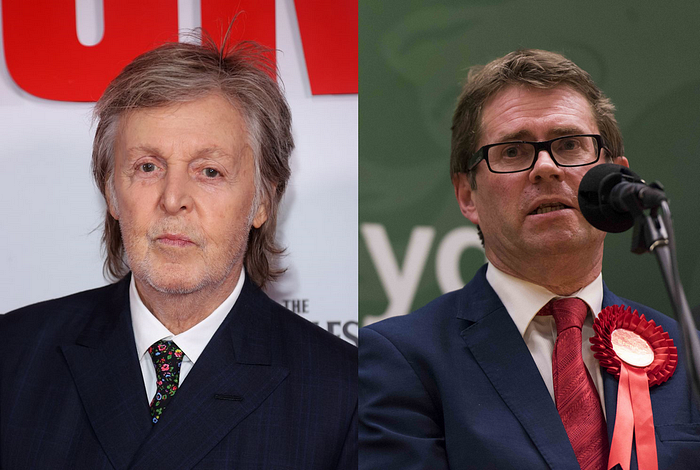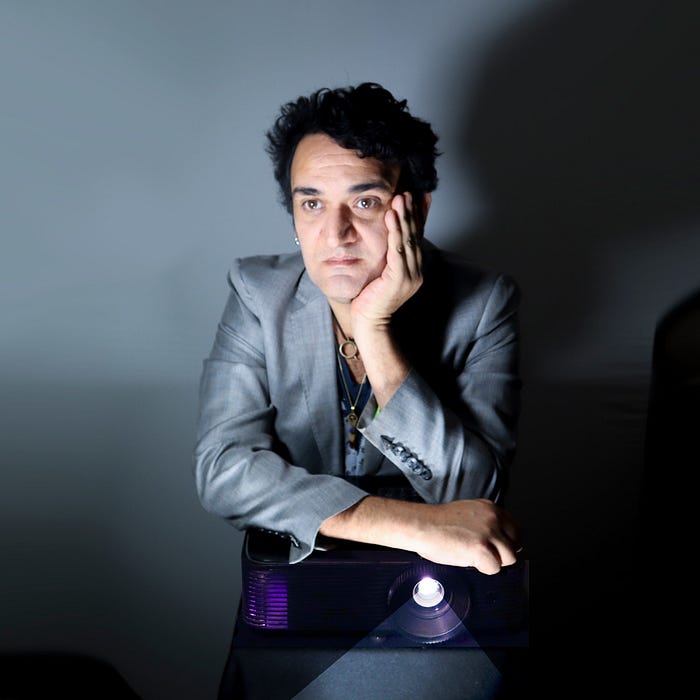Spotify, Sacrifice, and the Sacred Power of Music
The reality of streaming music is far from a dream

I believe that Spotify’s recent decision to invest $100 million in AI defence tech company Helsing sends a dangerous message to every other CEO of a global music service, and forces us to question if we are all sacrificing ethicality for convenience.
How ethical is our subscription to Spotify?
The very fabric of music has always been an intangible energy that has united communities across the world. When language, religion, race, or any other category of social identity sometimes fail to unify us, music always succeeds. It connects us to our collective and innate need for something sacred.
Sacred means treated without violation
During Daniel Ek’s tenure as CEO at Spotify, arguably the most convenient portal of popular music on the planet, he has been responsible for modifying our attitudes and behaviour toward music, along with major record labels who have enabled his business model. It’s modified how we experience music, value it, and how we access or participate in it.
Here in the United Kingdom, we are beginning to make inroads to make music streaming services remunerate music creators fairly, thanks to an indefatigable group of individuals in our industry and government, who have campaigned long and hard to improve the unfair playing field for music creators that Spotify is responsible for.

Matthew Horwood/Getty Images
The reality vs. the dream of streaming
The invisible wedge that Spotify has driven between fans of music and creators of music is, for some of us, a daily frustration that we are passionately and sensitively attempting to address. The platform offers fans of music a convenient and affordable plan to make music accessible that no fan of music would argue with. It’s a dream come true for all of us to be able to access whatever music we want, 24 hours a day. But the reality is far from a dream.
Music creators cannot survive on the portion of income that Spotify shares with those of us who create music. In effect, music fans get everything for a monthly sacrifice, music creators sacrifice a lot for very little in return, and Spotify is making no sacrifice at all. In fact…
Spotify is accruing enough money to invest in a company that can profit from war. Money generated by Spotify subscriptions.
In addition to not paying musicians fairly, Daniel Ek is now using the money he has made out of musicians to fund a company whose sole priority is securing lucrative contracts with military agencies, whose sole occupation for the last century has been war. Helsing is a new type of security and artificial intelligence company which claims to create artificial intelligence to serve liberal democracies/governments.
Well that sounds like a great pitch for an AI company vying for business from national governments, but we’ve all seen Oliver Stone and Michael Moore documentaries, so we know that ‘security’ is another world for military involvement with/or in conflict with other nations who are not liberal democracies. My perception of Spotify profits funding such a company isn’t political, and no matter how progressive, democratic, and reasonable their mission statement is, is simply not the point.
If the love of music has generated $100 million in profit, why not use it to support an organisation like Jo Berry’s Building Bridges for Peace whose work focuses on resolving conflict before it developments into a military situation?
Why continue to facilitate the concept of military conflict as a convention? Surely funding acts of empathy and conversation should come first?
I would urge Daniel Ek to think again and implore him to change his mind, but I fear the hopes of an independent musician will fall upon deaf ears. After all, over 180 well-known musicians have already signed an open letter against Spotify’s speech monitoring patent that Daniel Ek ignored.

Music culture was built on peace, not war
Those of us who create the bridge between Spotify and its consumers have done so through the inspiration and illumination of musical icons who were all aligned with the anti-war movement. I do not know if Daniel Ek knows about the social commentary of artists such as Bob Dylan, John Lennon, Pussy Riot, Bob Marley, Joan Baez, Kate Bush, or Nina Simone, but all of these artists have protested, through song, against war, as well as supplying his company with a rich culture of innovative and socially conscious music that his company benefits from.
For Spotify to uphold the economic benefits of corporate growth through war, even if it is positioned as ‘defence,’ is a multiple insult to music and an even deeper injury to humanity itself.
We are familiar with politicians being out of touch and disconnected to the civilians they are paid to protect, but for one of the wealthiest music CEOs in the world, to display this much disconnection and disrespect to the global community that enabled his powerful position, is beyond belief.

Spotify has sent a message to every music service in the world, that music is a commodity to uphold the outdated notion that investing in conflict is good for business.
And it does so at a time when the systemic structure of our economies are under scrutiny and in an unpredictable transition of reset. As a user of Spotify, this has made me think hard about what side of history I want to be on. This is a once-in-a-lifetime opportunity to support one of the most magical deterrents of conflict we have ever held: music.
If we support Spotify to continue down this road, we are all signalling a green light for more music services to use music to facilitate conflict.
As a singer, songwriter, and recording artist, I certainly do not wish my own music to be complicit in this grossly misguided and unethical development.

As such, I am removing my entire discography from Spotify. I have little power or influence to make a difference to Spotify’s cavalier attitude to music. But as the sole rights holder of all 23 of my albums, this is one small power I can execute, to put a tiny spotlight on Spotify’s corporate perversion of music.
This is a huge sacrifice for me. It’s going to hurt me professionally in terms of exposure and discoverability to take down my music from Spotify. But sacrifice is guided by our intention and not our personal loss. And my intention is to do something that does not violate music or its power to hold our community together.
How do I listen to music if I leave Spotify?
If you feel moved to leave Spotify, and are at a loss as to how to continue listening to the music you love, then I suggest joining one of the other streaming services for the mainstream music you enjoy. Tidal pays artists the most for streaming, but Bandcamp is arguably the best platform for independent and DIY artists.
I believe in personal choice, so if you continue to use Spotify, I respect that choice. However, I dearly hope this blog may light up the minds of my fellow artists, Spotify subscribers, and other music services to keep an open mind and consider that thinking differently, when we do it together, can effect real change in the world. I would never ask anyone else to do as I do, but I am happy to make this personal sacrifice if it means the future of music and its sacred place in our lives is never sacrificed. War is over. If you want it.
My music
Taking down all 23 of my albums from Spotify has been like starting my career all over again. Some of the lovely folk on Bandcamp are supporting by picking up my entire digital discography for a 90% discount we’ve created.
If you’d like to do the same, send me a message and I’ll send you the discount code so you can redeem the discount on my Bandcamp page here.
Thank you for your support!
Tim Arnold is a recipient of BBC Album of The Year, singer songwriter,
film maker, activist, and founder of Save Soho — a coalition of artists who came together to protect iconic music venues in the United Kingdom. Learn more.


